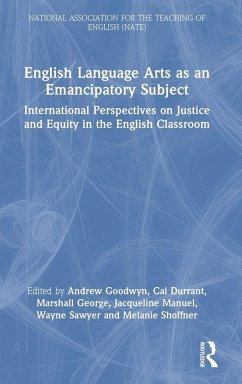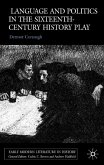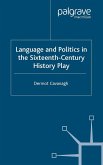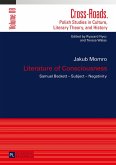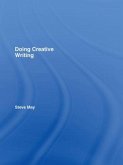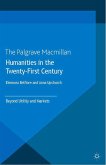English Language Arts as an Emancipatory Subject
International Perspectives on Justice and Equity in the English Classroom
Herausgeber: Goodwyn, Andrew; Sawyer, Wayne; Shoffner, Melanie; George, Marshall; Manuel, Jacqueline; Durrant, Cal
English Language Arts as an Emancipatory Subject
International Perspectives on Justice and Equity in the English Classroom
Herausgeber: Goodwyn, Andrew; Sawyer, Wayne; Shoffner, Melanie; George, Marshall; Manuel, Jacqueline; Durrant, Cal
- Gebundenes Buch
- Merkliste
- Auf die Merkliste
- Bewerten Bewerten
- Teilen
- Produkt teilen
- Produkterinnerung
- Produkterinnerung
English Language Arts as an Emancipatory Subject explores the changing nature and history of the English Language as an emancipatory subject, as well as how its current activities and projects address and challenge inequalities.
Andere Kunden interessierten sich auch für
![Imagining Alternative Worlds Imagining Alternative Worlds]() Christoffer KølvraaImagining Alternative Worlds201,99 €
Christoffer KølvraaImagining Alternative Worlds201,99 €![Language and Politics in the Sixteenth-Century History Play Language and Politics in the Sixteenth-Century History Play]() D. CavanaghLanguage and Politics in the Sixteenth-Century History Play63,99 €
D. CavanaghLanguage and Politics in the Sixteenth-Century History Play63,99 €![Language and Politics in the Sixteenth-Century History Play Language and Politics in the Sixteenth-Century History Play]() D. CavanaghLanguage and Politics in the Sixteenth-Century History Play37,99 €
D. CavanaghLanguage and Politics in the Sixteenth-Century History Play37,99 €![Literature of Consciousness Literature of Consciousness]() Jakub MomroLiterature of Consciousness70,50 €
Jakub MomroLiterature of Consciousness70,50 €![Doing Creative Writing Doing Creative Writing]() Steve MayDoing Creative Writing136,99 €
Steve MayDoing Creative Writing136,99 €![Humanities in the Twenty-First Century Humanities in the Twenty-First Century]() Eleonora BelfioreHumanities in the Twenty-First Century37,99 €
Eleonora BelfioreHumanities in the Twenty-First Century37,99 €![Children's Literature Children's Literature]() Pat PinsentChildren's Literature40,99 €
Pat PinsentChildren's Literature40,99 €-
-
-
English Language Arts as an Emancipatory Subject explores the changing nature and history of the English Language as an emancipatory subject, as well as how its current activities and projects address and challenge inequalities.
Hinweis: Dieser Artikel kann nur an eine deutsche Lieferadresse ausgeliefert werden.
Hinweis: Dieser Artikel kann nur an eine deutsche Lieferadresse ausgeliefert werden.
Produktdetails
- Produktdetails
- Verlag: Taylor & Francis Ltd
- Seitenzahl: 318
- Erscheinungstermin: 24. Dezember 2024
- Englisch
- Abmessung: 234mm x 156mm
- ISBN-13: 9781032746074
- ISBN-10: 1032746076
- Artikelnr.: 71235275
- Verlag: Taylor & Francis Ltd
- Seitenzahl: 318
- Erscheinungstermin: 24. Dezember 2024
- Englisch
- Abmessung: 234mm x 156mm
- ISBN-13: 9781032746074
- ISBN-10: 1032746076
- Artikelnr.: 71235275
Andrew Goodwyn is President of the International Federation for the Teaching of English and a Fellow of the Royal Society of the Arts. He is also Emeritus Professor, The University of Reading, UK. Jacqueline Manuel is Professor of English Education, Sydney School of Education and Social Work, University of Sydney, Australia. Cal Durrant is retired Associate Professor in English Curriculum and Director of the Literacy Research Hub, Australian Catholic University, Australia. Wayne Sawyer is Emeritus Professor, School of Education, Western Sydney University, Australia. Marshall George is Olshan Professor of Clinical Practice, Hunter College, City University of New York, USA. Melanie Shoffner is Professor of English Education, James Madison University, USA.
Part I: Establishing English as an Emancipatory Subject
1. Knowing the Subject, Knowing its History: Examining Key Figures in
English who Contributed to its Emancipatory Nature
2. English as an Emancipatory Subject in England: A Historical Perspective,
1875-2024
3. English Teaching for Democratic Futures: The Role of Language, Literacy
and Literature in Developing Creative and Critical Thinkers
4. The English Language Emerging as an Identity for Migrants and Refugees
5. Describing the World with Our Students in it: ELA and the Power of
'Recognition'
Part II: Reconfiguring the Curriculum of Emancipatory English
6. Teaching English to Nurture Social Imagination in the Early Years of
Schooling: Emancipation versus Constraints
7. English, Literature and Questions of Emancipation: What does Literature
Offer?
8. Equality, Diversity and Inclusion through Children's Literature in
Higher Education
9. Making English Good and Right: Curriculum Reform in Aotearoa New Zealand
10. The Power of English Within and For the Lives of Migrant and Refugee
Students
11. Rurality, Writing and English: Spatial Justice for Rural Students
through English Teaching and Writing Pedagogy
12. Transitioning from Critical Literacy to the Ecocritical
Part III: Emancipatory English in Practice
13. Cultivating Critical Thinking Through Canonical and Non-Canonical
Texts: Using a Social Justice Framework to Shape Curriculum and Instruction
14. Applying Country-Centred Place Pedagogies to Include All Learners in
English
15. The Dignity of Choice: Independent Reading's Emancipatory Potential as
an Instructional Practice
16. Ungrading for Social Justice: De-Centering Grades, Inequity, and White
Supremacy
17. Recovering Truth-Seeking Ethical Pedagogies for the Literature
Classroom in a Post-Truth Age
18. Shaping Identities: How Marginalized Students Harness Discourse to
Reclaim Power in English Language Arts
19. "I Make it What I Want": Cultivating Fugitive Spaces of Acceptance and
Resistance for Minoritized Students in the ELA Classroom
Part IV: Teachers of Emancipatory English
20. Possibilities and Practicalities: English Teachers and Their Creation
of Spaces for Students' Voices and Agency
21. U.S. Teachers, Book Bans, and Sustaining the Self in the Southern
Discourse
22. From Teacher to Teacher Educator: Developing an Anti-Racist,
Anti-Biased Stance
Kristen Hawley Turner
23. Reflection and Liberation: The Reimagination of an English Methods
Course
Madison Gannon and Jennifer Ervin
1. Knowing the Subject, Knowing its History: Examining Key Figures in
English who Contributed to its Emancipatory Nature
2. English as an Emancipatory Subject in England: A Historical Perspective,
1875-2024
3. English Teaching for Democratic Futures: The Role of Language, Literacy
and Literature in Developing Creative and Critical Thinkers
4. The English Language Emerging as an Identity for Migrants and Refugees
5. Describing the World with Our Students in it: ELA and the Power of
'Recognition'
Part II: Reconfiguring the Curriculum of Emancipatory English
6. Teaching English to Nurture Social Imagination in the Early Years of
Schooling: Emancipation versus Constraints
7. English, Literature and Questions of Emancipation: What does Literature
Offer?
8. Equality, Diversity and Inclusion through Children's Literature in
Higher Education
9. Making English Good and Right: Curriculum Reform in Aotearoa New Zealand
10. The Power of English Within and For the Lives of Migrant and Refugee
Students
11. Rurality, Writing and English: Spatial Justice for Rural Students
through English Teaching and Writing Pedagogy
12. Transitioning from Critical Literacy to the Ecocritical
Part III: Emancipatory English in Practice
13. Cultivating Critical Thinking Through Canonical and Non-Canonical
Texts: Using a Social Justice Framework to Shape Curriculum and Instruction
14. Applying Country-Centred Place Pedagogies to Include All Learners in
English
15. The Dignity of Choice: Independent Reading's Emancipatory Potential as
an Instructional Practice
16. Ungrading for Social Justice: De-Centering Grades, Inequity, and White
Supremacy
17. Recovering Truth-Seeking Ethical Pedagogies for the Literature
Classroom in a Post-Truth Age
18. Shaping Identities: How Marginalized Students Harness Discourse to
Reclaim Power in English Language Arts
19. "I Make it What I Want": Cultivating Fugitive Spaces of Acceptance and
Resistance for Minoritized Students in the ELA Classroom
Part IV: Teachers of Emancipatory English
20. Possibilities and Practicalities: English Teachers and Their Creation
of Spaces for Students' Voices and Agency
21. U.S. Teachers, Book Bans, and Sustaining the Self in the Southern
Discourse
22. From Teacher to Teacher Educator: Developing an Anti-Racist,
Anti-Biased Stance
Kristen Hawley Turner
23. Reflection and Liberation: The Reimagination of an English Methods
Course
Madison Gannon and Jennifer Ervin
Part I: Establishing English as an Emancipatory Subject
1. Knowing the Subject, Knowing its History: Examining Key Figures in
English who Contributed to its Emancipatory Nature
2. English as an Emancipatory Subject in England: A Historical Perspective,
1875-2024
3. English Teaching for Democratic Futures: The Role of Language, Literacy
and Literature in Developing Creative and Critical Thinkers
4. The English Language Emerging as an Identity for Migrants and Refugees
5. Describing the World with Our Students in it: ELA and the Power of
'Recognition'
Part II: Reconfiguring the Curriculum of Emancipatory English
6. Teaching English to Nurture Social Imagination in the Early Years of
Schooling: Emancipation versus Constraints
7. English, Literature and Questions of Emancipation: What does Literature
Offer?
8. Equality, Diversity and Inclusion through Children's Literature in
Higher Education
9. Making English Good and Right: Curriculum Reform in Aotearoa New Zealand
10. The Power of English Within and For the Lives of Migrant and Refugee
Students
11. Rurality, Writing and English: Spatial Justice for Rural Students
through English Teaching and Writing Pedagogy
12. Transitioning from Critical Literacy to the Ecocritical
Part III: Emancipatory English in Practice
13. Cultivating Critical Thinking Through Canonical and Non-Canonical
Texts: Using a Social Justice Framework to Shape Curriculum and Instruction
14. Applying Country-Centred Place Pedagogies to Include All Learners in
English
15. The Dignity of Choice: Independent Reading's Emancipatory Potential as
an Instructional Practice
16. Ungrading for Social Justice: De-Centering Grades, Inequity, and White
Supremacy
17. Recovering Truth-Seeking Ethical Pedagogies for the Literature
Classroom in a Post-Truth Age
18. Shaping Identities: How Marginalized Students Harness Discourse to
Reclaim Power in English Language Arts
19. "I Make it What I Want": Cultivating Fugitive Spaces of Acceptance and
Resistance for Minoritized Students in the ELA Classroom
Part IV: Teachers of Emancipatory English
20. Possibilities and Practicalities: English Teachers and Their Creation
of Spaces for Students' Voices and Agency
21. U.S. Teachers, Book Bans, and Sustaining the Self in the Southern
Discourse
22. From Teacher to Teacher Educator: Developing an Anti-Racist,
Anti-Biased Stance
Kristen Hawley Turner
23. Reflection and Liberation: The Reimagination of an English Methods
Course
Madison Gannon and Jennifer Ervin
1. Knowing the Subject, Knowing its History: Examining Key Figures in
English who Contributed to its Emancipatory Nature
2. English as an Emancipatory Subject in England: A Historical Perspective,
1875-2024
3. English Teaching for Democratic Futures: The Role of Language, Literacy
and Literature in Developing Creative and Critical Thinkers
4. The English Language Emerging as an Identity for Migrants and Refugees
5. Describing the World with Our Students in it: ELA and the Power of
'Recognition'
Part II: Reconfiguring the Curriculum of Emancipatory English
6. Teaching English to Nurture Social Imagination in the Early Years of
Schooling: Emancipation versus Constraints
7. English, Literature and Questions of Emancipation: What does Literature
Offer?
8. Equality, Diversity and Inclusion through Children's Literature in
Higher Education
9. Making English Good and Right: Curriculum Reform in Aotearoa New Zealand
10. The Power of English Within and For the Lives of Migrant and Refugee
Students
11. Rurality, Writing and English: Spatial Justice for Rural Students
through English Teaching and Writing Pedagogy
12. Transitioning from Critical Literacy to the Ecocritical
Part III: Emancipatory English in Practice
13. Cultivating Critical Thinking Through Canonical and Non-Canonical
Texts: Using a Social Justice Framework to Shape Curriculum and Instruction
14. Applying Country-Centred Place Pedagogies to Include All Learners in
English
15. The Dignity of Choice: Independent Reading's Emancipatory Potential as
an Instructional Practice
16. Ungrading for Social Justice: De-Centering Grades, Inequity, and White
Supremacy
17. Recovering Truth-Seeking Ethical Pedagogies for the Literature
Classroom in a Post-Truth Age
18. Shaping Identities: How Marginalized Students Harness Discourse to
Reclaim Power in English Language Arts
19. "I Make it What I Want": Cultivating Fugitive Spaces of Acceptance and
Resistance for Minoritized Students in the ELA Classroom
Part IV: Teachers of Emancipatory English
20. Possibilities and Practicalities: English Teachers and Their Creation
of Spaces for Students' Voices and Agency
21. U.S. Teachers, Book Bans, and Sustaining the Self in the Southern
Discourse
22. From Teacher to Teacher Educator: Developing an Anti-Racist,
Anti-Biased Stance
Kristen Hawley Turner
23. Reflection and Liberation: The Reimagination of an English Methods
Course
Madison Gannon and Jennifer Ervin
